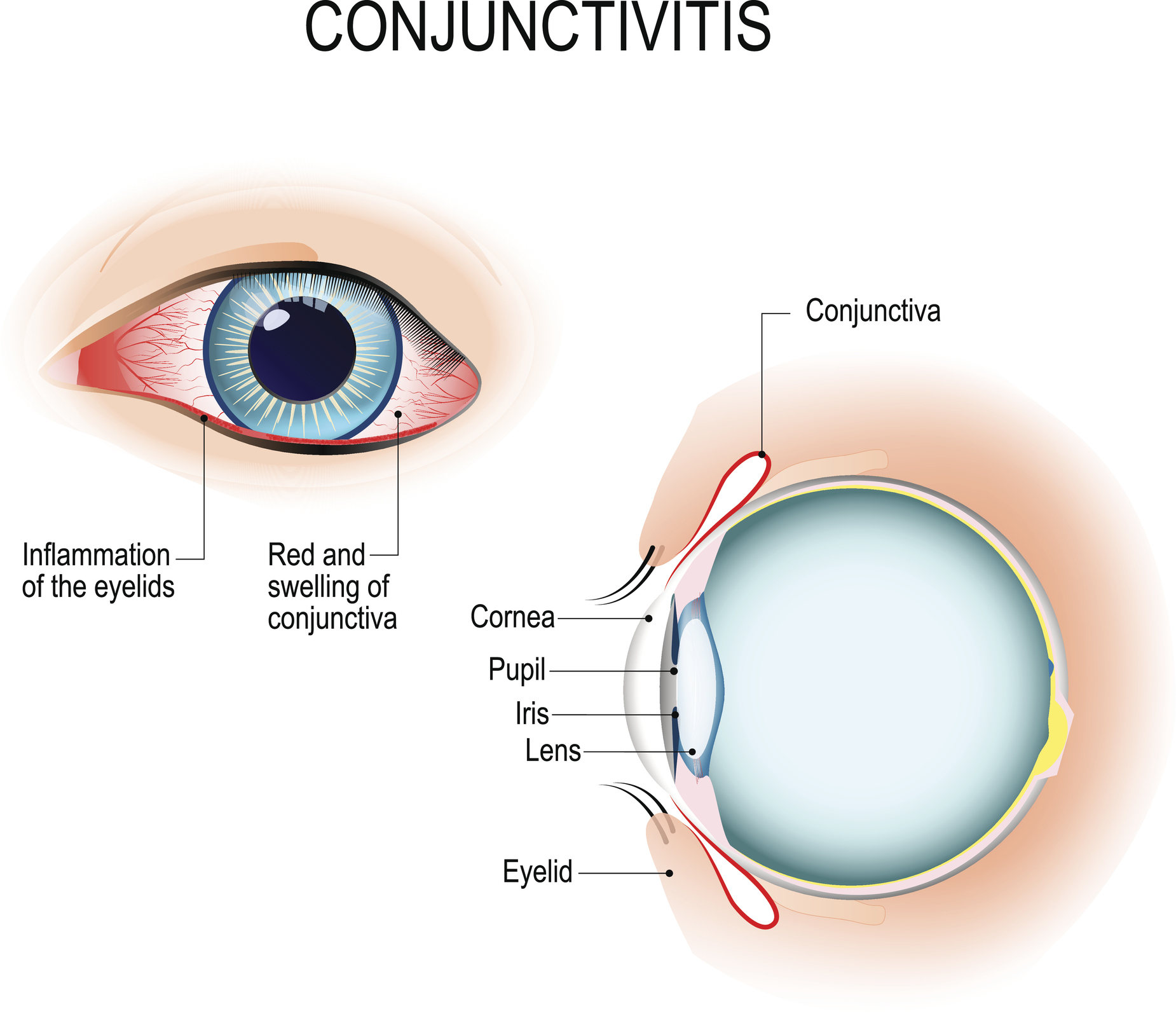Unveiling the Conjunctiva: Your Eye’s Guardian
Embark on a journey to understand the conjunctiva, the thin yet crucial membrane safeguarding your eyes. Learn about its vital functions, common issues like conjunctivitis, preventive measures, and when to seek professional advice. Discover the pivotal role of the conjunctiva in maintaining clear and comfortable eyes.
Overview of Conjunctiva
The conjunctiva, a delicate membrane covering the front of your eyes and inner eyelids, stands as a sentinel guarding against external threats. Understanding its functions, recognizing potential issues, and adopting preventive measures are key to ensuring the well-being of your eyes.
Functions of the Conjunctiva
The conjunctiva is a thin, transparent membrane that covers the white part of the eye (sclera) and lines the inner surface of the eyelids. It serves several important functions:
- Protection: The conjunctiva acts as a protective barrier, preventing foreign particles, dust, and microorganisms from entering the eye.
- Lubrication: It produces mucus and tears that contribute to the lubrication of the eye’s surface, preventing dryness and maintaining a smooth optical surface.
- Immunological Defense: The conjunctiva contains immune cells that play a role in the eye’s defense against infections.
- Nutrient Supply: Blood vessels in the conjunctiva provide a blood supply to the outer surface of the eye, contributing to the nourishment of surrounding tissues.
Common Conjunctival Issues
- Conjunctivitis (Pink Eye): Inflammation of the conjunctiva, often caused by infections (bacterial or viral), allergies, or irritants.
- Conjunctival Hemorrhage: Blood vessel rupture in the conjunctiva, leading to the appearance of a red patch on the eye.
- Conjunctival Cysts: Small, fluid-filled sacs that may form on the conjunctiva.
- Conjunctival Abrasions: Scratches or injuries to the conjunctiva, often resulting from foreign objects or trauma.
Preventive Measures
- Eye Hygiene: Practicing good eye hygiene, including regular handwashing, helps prevent the introduction of harmful microorganisms to the conjunctiva.
- Avoiding Eye Irritants: Limiting exposure to irritants such as smoke, dust, and pollutants can reduce the risk of conjunctival irritation.
- Protective Eyewear: Wearing appropriate protective eyewear in situations where eye injuries are possible, such as during sports or certain activities, helps prevent trauma to the conjunctiva.
- Managing Allergies: For individuals prone to allergic reactions, managing allergies through antihistamines or avoiding allergens can prevent allergic conjunctivitis.
When to Seek Professional Advice
- Persistent Redness or Discomfort: If there is persistent redness, irritation, or discomfort in the eyes, seeking professional advice is recommended.
- Changes in Vision: Any sudden changes in vision or the appearance of visual disturbances should prompt a visit to an eye care professional.
- Eye Injury: Immediate medical attention is necessary for any trauma or injury to the eye that may affect the conjunctiva.
Importance of Conjunctival Health
Maintaining conjunctival health is crucial for overall eye comfort, vision, and protection against infections. Issues with the conjunctiva can lead to discomfort, visual disturbances, and increased susceptibility to infections.
Conclusion
In conclusion, the conjunctiva plays a vital role in protecting and maintaining the health of the eyes. Practicing preventive measures, seeking professional advice when needed, and understanding the importance of conjunctival health contribute to overall eye well-being. Regular eye examinations and prompt attention to any signs of conjunctival issues ensure early detection and appropriate management, promoting optimal eye health and comfort.
World Eye Care Foundation’s eyecare.live brings you the latest information from various industry sources and experts in eye health and vision care. Please consult with your eye care provider for more general information and specific eye conditions. We do not provide any medical advice, suggestions or recommendations in any health conditions.
Commonly Asked Questions
In some cases, conjunctivitis may be a symptom of an underlying eye condition. Consulting with an eye specialist helps rule out serious issues and ensures proper care.
While most conjunctival issues resolve with proper care, chronic conditions may arise in rare cases, emphasizing the importance of regular eye check-ups.
Over-the-counter eye drops may provide relief for certain symptoms, but professional advice is crucial to determine the appropriate treatment for the specific cause.
Extreme weather conditions may contribute to dry eyes but are not the sole cause of conjunctivitis, which is often related to infections or allergies.
Conjunctivitis can affect individuals of all ages, but certain forms, like viral conjunctivitis, are more common in children.
Yes, conjunctivitis can affect one eye initially and then spread to the other. It’s essential to avoid touching or rubbing the eyes to prevent spreading.
Yes, avoiding swimming is advisable to prevent the spread of infectious conjunctivitis and to protect your eyes from irritants in pool water.
Extended screen time may contribute to eye discomfort, but conjunctivitis is typically caused by infections, allergies, or irritants.
Yes, contagious forms of conjunctivitis, caused by bacteria or viruses, are transmissible. Allergic conjunctivitis, however, is not contagious.
While most cases of conjunctivitis do not impact vision, severe infections may temporarily blurry vision and require prompt attention.
news via inbox
Subscribe here to get latest updates !







